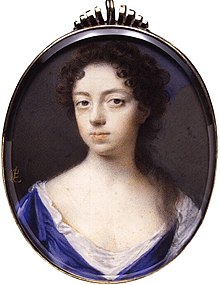The Introduction
Did I, my lines intend for publick view,
How many censures, wou'd their faults persue,
Some wou'd, because such words they do affect,
Cry they're insipid, empty, uncorrect.
And many, have attain'd, dull and untaught
The name of Witt, only by finding fault.
True judges, might condemn their want of witt,
And all might say, they're by a Woman writt.
Alas! a woman that attempts the pen,
Such an intruder on the rights of men,
Such a presumptuous Creature, is esteem'd,
The fault, can by no vertue be redeem'd.
They tell us, we mistake our sex and way;
Good breeding, fassion, dancing, dressing, play
Are the accomplishments we shou'd desire;
To write, or read, or think, or to enquire
Wou'd cloud our beauty, and exaust our time;
And interrupt the Conquests of our prime;
Whilst the dull mannage, of a servile house
Is held by some, our outmost art, and use.
Sure 'twas not ever thus, nor are we told
Fables, of Women that excell'd of old;
To whom, by the diffusive hand of Heaven
Some share of witt, and poetry was given.
On that glad day, on which the Ark return'd, {1}
The holy pledge, for which the Land had mourn'd,
The joyfull Tribes, attend itt on the way,
The Levites do the sacred Charge convey,
Whilst various Instruments, before itt play;
Here, holy Virgins in the Concert joyn,
The louder notes, to soften, and refine,
And with alternate verse, compleat the Hymn Devine.
Loe! the yong Poet, after Gods own heart, {2}
By Him inspired, and taught the Muses Art,
Return'd from Conquest, a bright Chorus meets,
That sing his slayn ten thousand in the streets.
In such loud numbers they his acts declare,
Proclaim the wonders, of his early war,
That Saul upon the vast applause does frown,
And feels, itts mighty thunder shake the Crown.
What, can the threat'n'd Judgment now prolong?
Half of the Kingdom is already gone;
The fairest half, whose influence guides the rest,
Have David's Empire, o're their hearts confess't.
A Woman here, leads fainting Israel on, {3}
She fights, she wins, she tryumphs with a song,
Devout, Majestick, for the subject fitt,
And far above her arms, exalts her witt,
Then, to the peacefull, shady Palm withdraws,
And rules the rescu'd Nation with her Laws.
How are we fal'n, fal'n by mistaken rules?
And Education's, more than Nature's fools,
Debarr'd from all improve-ments of the mind,
And to be dull, expected and dessigned;
And if some one, would Soar above the rest,
With warmer fancy, and ambition press't,
So strong, th' opposing faction still appears,
The hopes to thrive, can ne're outweigh the fears,
Be caution'd then my Muse, and still retir'd;
Nor be dispis'd, aiming to be admir'd;
Conscious of wants, still with contracted wing,
To some few freinds, and to thy sorrows sing;
For groves of Lawrell, thou wert never meant; {4}
Be dark enough thy shades, and be thou there content.
Font size:
Submitted on May 13, 2011
Modified on May 03, 2023
- 2:37 min read
- 141 Views
Quick analysis:
| Scheme | ABCCCDECFFGGHHIIJJBBKKLLMNHHHFOOPPBBQRSSTUVWUTEEBBBBYCVWBBZZ1 1 2 2 |
|---|---|
| Closest metre | Iambic pentameter |
| Characters | 2,782 |
| Words | 495 |
| Stanzas | 1 |
| Stanza Lengths | 64 |
Translation
Find a translation for this poem in other languages:
Select another language:
- - Select -
- 简体中文 (Chinese - Simplified)
- 繁體中文 (Chinese - Traditional)
- Español (Spanish)
- Esperanto (Esperanto)
- 日本語 (Japanese)
- Português (Portuguese)
- Deutsch (German)
- العربية (Arabic)
- Français (French)
- Русский (Russian)
- ಕನ್ನಡ (Kannada)
- 한국어 (Korean)
- עברית (Hebrew)
- Gaeilge (Irish)
- Українська (Ukrainian)
- اردو (Urdu)
- Magyar (Hungarian)
- मानक हिन्दी (Hindi)
- Indonesia (Indonesian)
- Italiano (Italian)
- தமிழ் (Tamil)
- Türkçe (Turkish)
- తెలుగు (Telugu)
- ภาษาไทย (Thai)
- Tiếng Việt (Vietnamese)
- Čeština (Czech)
- Polski (Polish)
- Bahasa Indonesia (Indonesian)
- Românește (Romanian)
- Nederlands (Dutch)
- Ελληνικά (Greek)
- Latinum (Latin)
- Svenska (Swedish)
- Dansk (Danish)
- Suomi (Finnish)
- فارسی (Persian)
- ייִדיש (Yiddish)
- հայերեն (Armenian)
- Norsk (Norwegian)
- English (English)
Citation
Use the citation below to add this poem to your bibliography:
Style:MLAChicagoAPA
"The Introduction" Poetry.com. STANDS4 LLC, 2024. Web. 10 Nov. 2024. <https://www.poetry.com/poem/3296/the-introduction>.



Discuss the poem The Introduction with the community...
Report Comment
We're doing our best to make sure our content is useful, accurate and safe.
If by any chance you spot an inappropriate comment while navigating through our website please use this form to let us know, and we'll take care of it shortly.
Attachment
You need to be logged in to favorite.
Log In